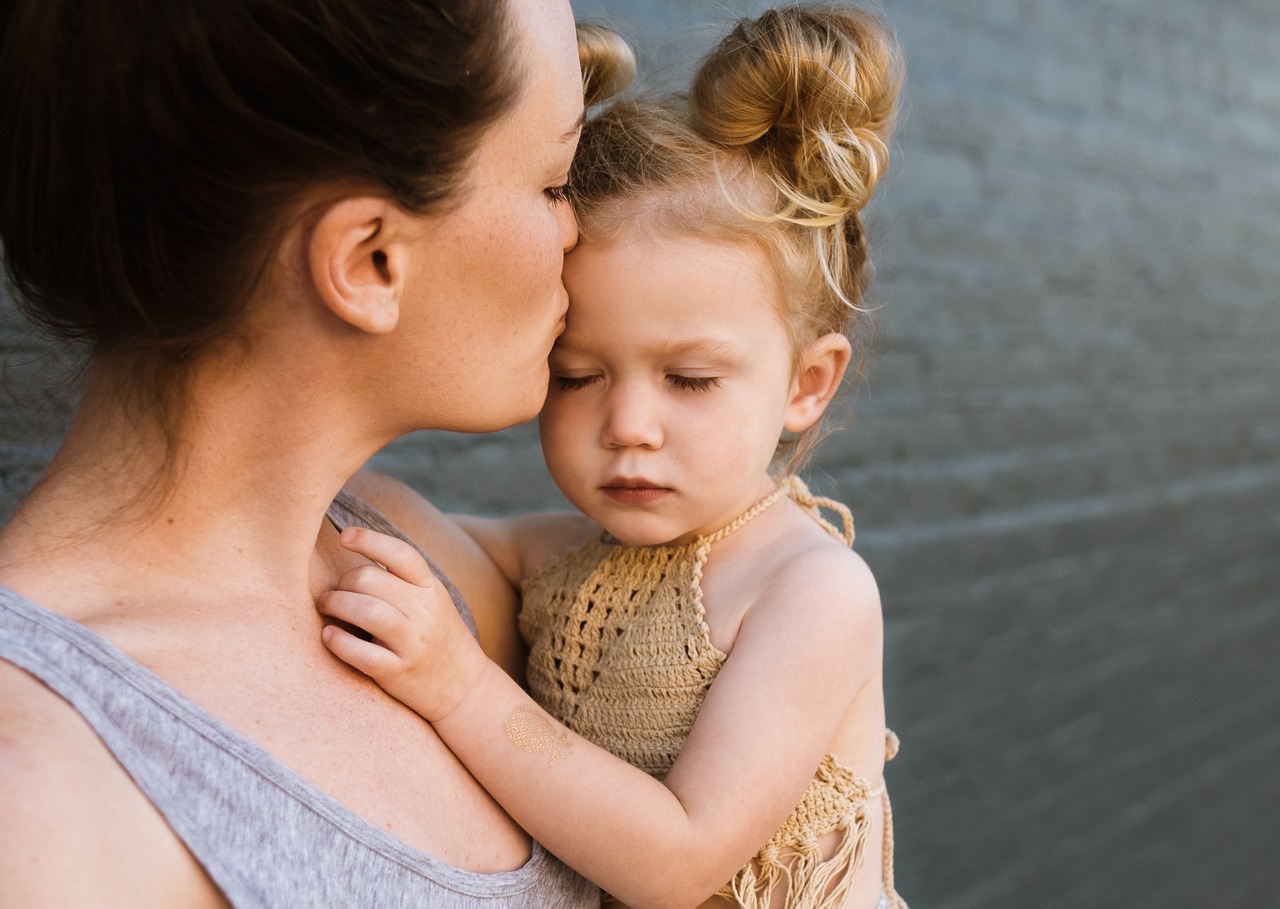Let’s get one thing straight, modern parents. We all want the best for our tiny tots, right? And if you’re anything like me, you’ve probably flipped through at least a dozen parenting books, desperately seeking the one chapter that might teach us how to magically disappear from our child’s life without them crying rivers. Alas, separation anxiety is real, and just like your child’s fondness for drawing on walls, it’s a phase (that sometimes feels like it’s lasting forever).
1. Pretend They’re at a 5-Star Resort
The first step in tackling your kid’s separation anxiety? Mindset. Whenever you leave your little bundle of joy at daycare or with a babysitter, imagine they’re checking into a 5-star resort. You know, the kind with chocolate fountains and bouncy castles. When you think about it, isn’t daycare just a fancy resort for toddlers? They get to eat, nap, and have someone else clean up their mess. Now, who’s getting the better deal here?
2. Become a Master of Distraction
If James Bond was a parent, this would be his go-to move. Just before you make your daring escape, distract your little one with their favorite toy, a shiny object, or a sudden made-up game. “Look! There’s a unicorn in the corner!” Okay, maybe not that exaggerated, but you get the gist. With their attention diverted, you can make a stealthy exit. Remember, the key is to leave while they’re still distracted. If you wait too long, they might catch on, and then you’re back to square one.
3. Practice “Short Goodbyes” (And No, It’s Not a New Dance Move)
Goodbyes are like ripping off a Band-Aid: it’s best to do it quickly. Prolonged farewells might seem sweet, but they only ramp up the anxiety. So, avoid the dramatic, tear-jerking monologues. Instead, go for a swift hug, a peck on the cheek, and a breezy “See ya later, alligator!” If you make it casual, they might just start to think it’s a regular part of the daily routine – like refusing to eat their greens or asking why the sky is blue for the hundredth time.
4. Invisibility Cloak Not Required
Remember those fantasies of owning Harry Potter’s invisibility cloak to sneak out unseen? Well, you can put those dreams to rest. Sneaking out when they’re not looking might seem like the easy way out, but in the long run, it might just make your child more anxious. They’re smarter than you think, and they’ll catch on. Plus, they might start believing in spontaneous parental disappearances. Do you really want them checking every room for you every time they blink?
5. Send in the Clone (Or Just a Familiar Object)
Okay, so science hasn’t given us the ability to clone ourselves just yet (bummer, right?), but in the meantime, you can give your child something familiar when you’re away. This could be your scarf, a t-shirt, or a family photo – essentially, anything that smells or reminds them of home. It’s like giving them a pocket-sized version of you. Only less talkative.
6. Therapy (For You, Not Them)
Look, there’s no shame in admitting that sometimes we, as parents, suffer more from the separation than our kiddos. It’s like that old saying, “It’s not you, it’s me.” Consider joining a support group or indulging in some therapy sessions. Talk about your feelings, share stories of your daring daycare drop-offs, and get validation that you’re not the only one considering a parental invisibility cloak.
7. Remember, It’s a Phase (Like Those Terrible Twos… and Threes… and Teens)
Like every challenging phase of parenting (and there are many, as you might have noticed), this too shall pass. Just like their obsession with that annoying cartoon character or their determination to wear rain boots in the summer. Hang in there, champ!
In conclusion, handling your child’s separation anxiety with grace and humor is all about perspective. Embrace the challenge, laugh off the hard moments, and remember – every time they cry when you leave, it’s just their unique, oh-so-dramatic way of saying they love you to bits. So, wear those tearful goodbyes as a badge of honor.
Cheers to surviving another day of the wild rollercoaster called parenting. And even if you occasionally contemplate shipping them off to grandma’s permanently, you’re doing an amazing job. Keep rocking it, superstar parents!
Pro Tips for Overcoming Separation Blues: The Extra Sprinkles on Top
- Set Up Playdates: Sometimes, the presence of a familiar friend can ease the initial moments of separation. Setting up regular playdates can help your child look forward to daycare or school, turning their focus from your absence to the fun they’ll have.
- Rituals are Key: Make your goodbyes a special moment. Whether it’s a secret handshake, a unique wave, or a silly song you both sing, it gives them something to look forward to and turns a potentially traumatic moment into a cherished ritual.
- Post-Separation Treats: Tell your child about a fun activity or treat you can do together once you’re reunited. This gives them something positive to anticipate, making the separation seem temporary.
- Storytime: Kids love stories. Share tales of brave little characters who ventured out on their own and had great adventures. This not only entertains them but also subtly instills the idea that being independent can be fun and rewarding.
- Practice Makes Perfect: Before the first big separation, like the first day of school, try short separations at home. You can play a game where they stay in their room for increasing intervals, reassuring them each time that you’ll always come back.
- Visual Countdowns: For older kids, visual aids like countdown timers or calendars can help. If they can see when you’re coming back, it makes your absence feel more manageable.
- Positive Feedback: Every time they handle a separation well, celebrate it. A little praise goes a long way. Over time, they’ll associate your departures with the positive feeling of accomplishment.
- Stay Calm and Carry On: Kids are intuitive. If they sense you’re anxious about leaving them, they’ll pick up on it. Even if you’re feeling like a nervous wreck, put on that Oscar-worthy performance and act calm and confident.
Remember, every child is different. What works wonders for one might not be as effective for another. The key is patience, understanding, and a dash of humor. Before you know it, they’ll be waving you off with barely a backward glance (and yes, that will have its own set of emotions). Welcome to the ever-evolving world of parenting!
FAQs: Navigating the Murky Waters of Separation Anxiety
While it can vary widely, most children start showing signs of separation anxiety between 8-14 months. However, bouts can reappear at various stages, especially during major transitions like starting school.
Not necessarily. Many children experience it as a normal part of development. However, if the anxiety seems extreme or prolonged, it’s always a good idea to consult with a pediatrician or child psychologist.
Ah, the classic “reunion protest.” This can be a child’s way of expressing, “Hey, I didn’t like that you left!” It’s their moment to show you they were upset, even if they managed well while you were away.
In most cases, no. With proper handling and support, children outgrow this phase without any lingering effects. But prolonged or extreme cases, if not addressed, could evolve into more serious anxiety issues later on.
Like all phases, it varies. Some children breeze through it in a few weeks, while others might take months. The key is consistency and support.
Communication is essential. Discuss your child’s needs and share strategies that work for you. Remember, they are your allies in helping your child adjust.
Every child is unique. Some are naturally more independent, while others might be more attached. Comparisons can be tricky; it’s best to approach each child’s needs individually.
Trust your instincts. If something feels off, don’t hesitate to seek guidance from professionals. They can provide strategies or interventions to help both you and your child.



